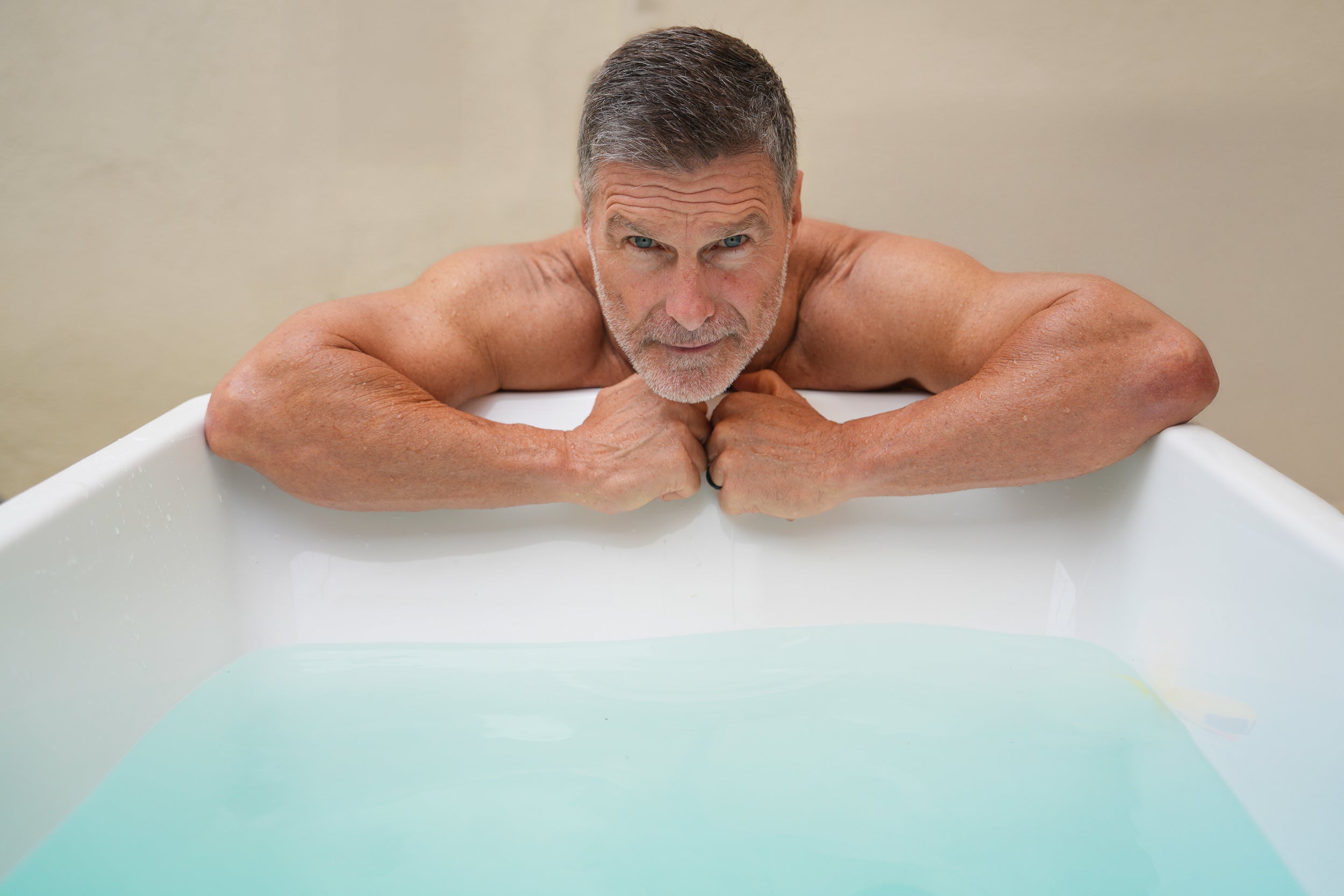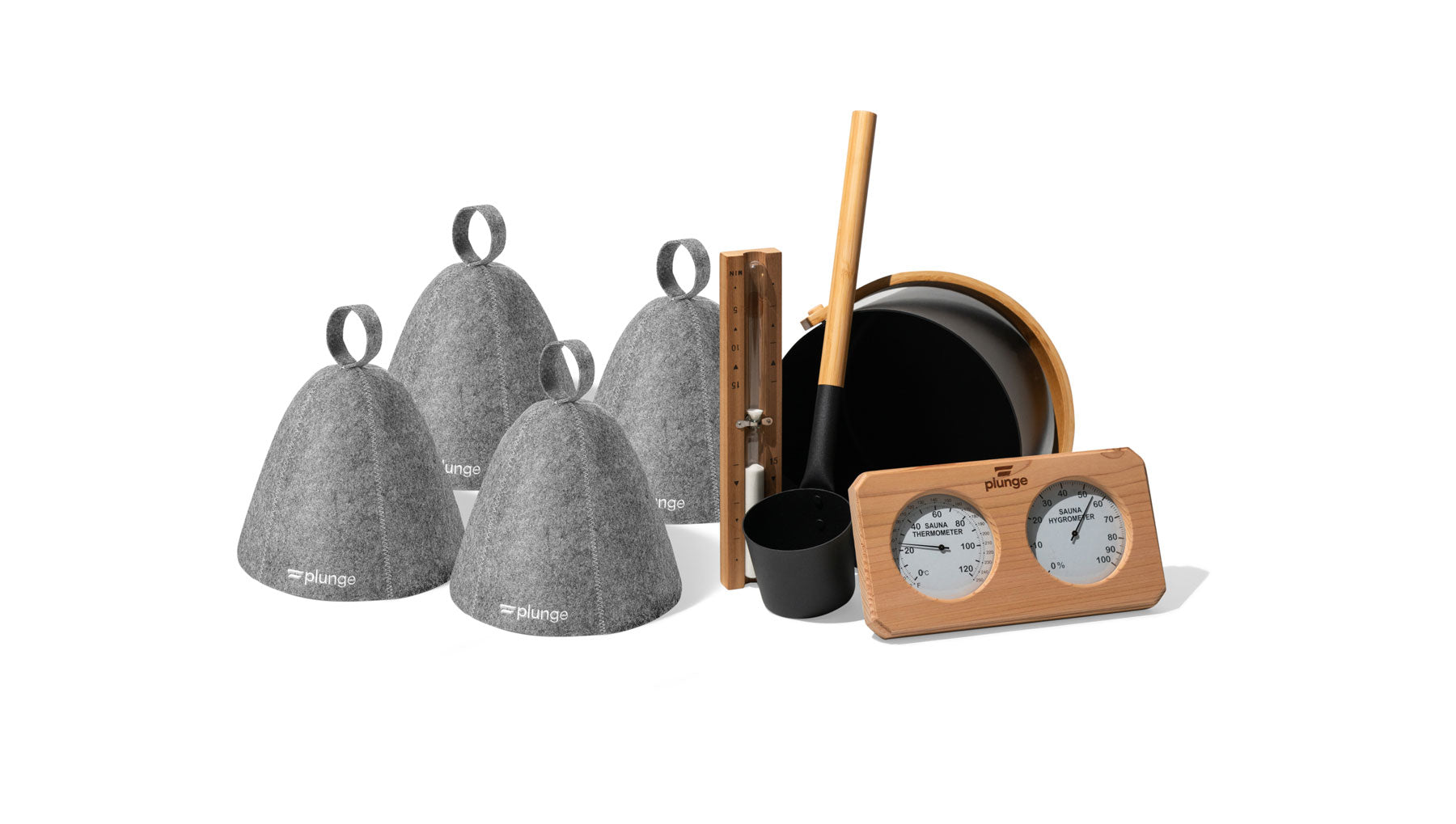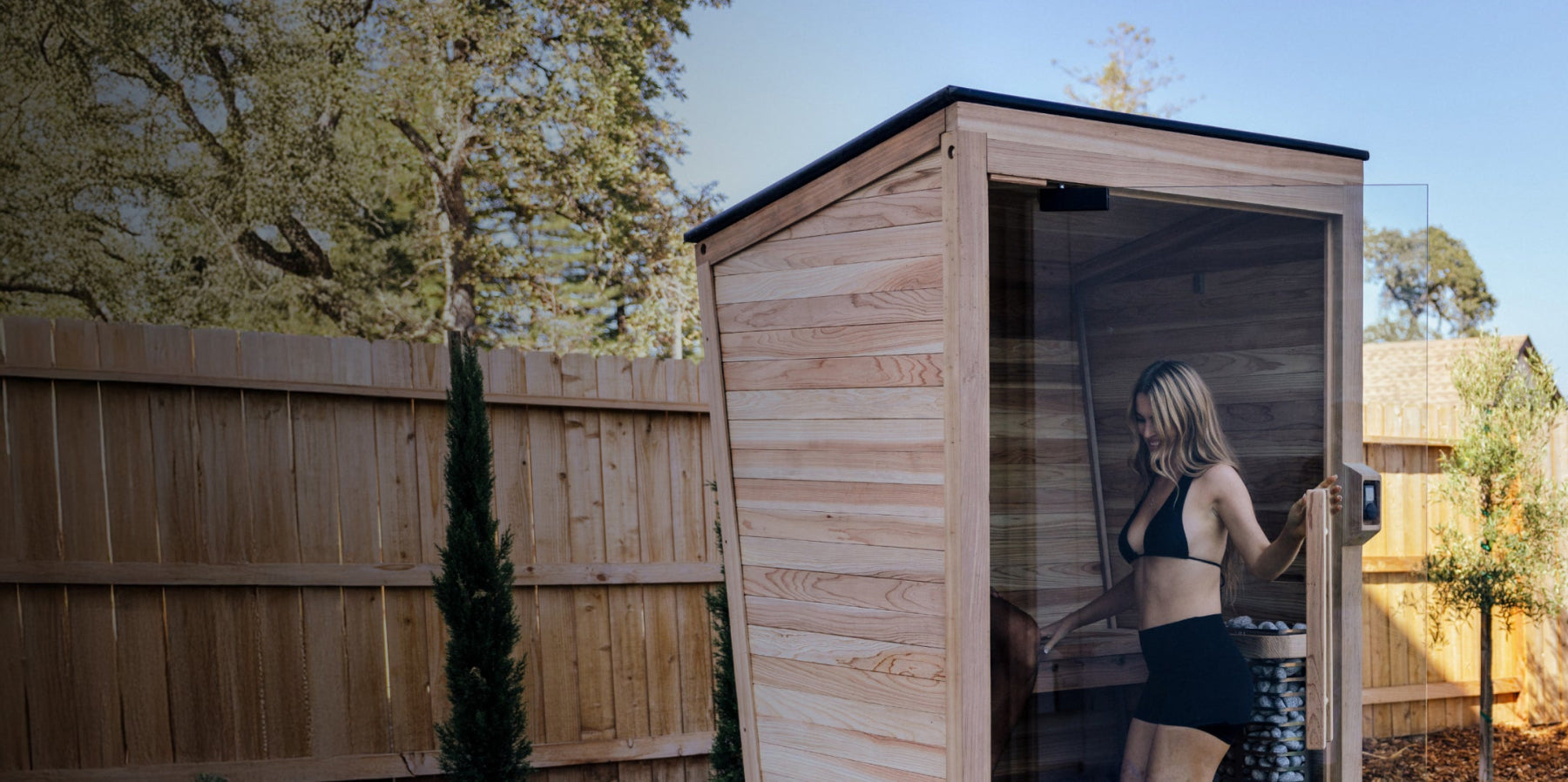
Men’s Mental Health Month: Let’s Talk About It
June is Men’s Mental Health Month, a time to check in, speak up, and break the silence. Because the stats don’t lie: men are less likely to talk about their mental health, and more likely to suffer in silence.
At Plunge, we’re big believers in doing hard things. But bottling it up? That’s not strength. Taking care of your mind is.
Cold Plunging: Mood Boosting Benefits
Cold plunging isn’t just a physical challenge, it’s mental training. That jolt of cold resets your nervous system, boosts dopamine, and gives you a tangible win when the rest of life feels overwhelming. It teaches resilience. Stillness. Breath. Control. For many of us, it’s where the mental fog lifts, even just a little.
-
Dopamine Surge (aka your "feel-good" molecule):
-
Cold exposure can increase dopamine levels by up to 250% - similar to or even higher than some antidepressant medications.
-
This creates a natural high that can last for hours post-plunge.
-
-
Norepinephrine Boost:
-
Cold plunging elevates norepinephrine, which helps with alertness, focus, energy, and a positive mood.
-
-
Reduced Anxiety & Depression Symptoms:
-
Studies suggest that regular cold exposure may reduce symptoms of anxiety and depression by regulating the nervous system and lowering inflammation.
-
-
Nervous System Reset:
-
The cold activates the parasympathetic nervous system post-plunge, helping calm stress and create a state of mental clarity and calm.
-
-
Sense of Accomplishment & Resilience:
-
Getting into cold water is mentally challenging. Overcoming it trains discipline, builds confidence, and reinforces a sense of control - powerful tools for mental health.
-
Sauna: Mood Boosting Benefits
On the other side, the sauna is where stress melts off. Heat therapy helps lower cortisol, ease anxiety, and increase relaxation through endorphin release. It’s not just about sweating, it’s about slowing down. About being in your body when your mind won’t stop racing.
-
Endorphin Release (natural painkillers & mood elevators):
-
Heat exposure triggers the release of endorphins, leading to a natural sense of euphoria and relaxation.
-
-
Lower Cortisol (stress hormone):
-
Sauna sessions can reduce cortisol levels, helping manage chronic stress and anxiety.
-
-
Improved Sleep (which directly improves mood):
-
Sauna use promotes deeper, more restful sleep due to changes in body temperature and relaxation, which in turn stabilizes mood.
-
-
Increased BDNF (Brain-Derived Neurotrophic Factor):
-
Regular sauna use may increase BDNF, which supports brain plasticity, cognitive function, and emotional regulation, all crucial for mood stability.
-
-
Social Connection (if done with others):
-
Community sauna sessions can foster social bonds, which are protective against loneliness and depression.
-
So this month, whether you’re using the cold, the heat, or both, use them to care for your mental health. And check in with the men in your life. Invite them to plunge. Sit with them in the sauna. Talk. Or just breathe together in silence. It all counts.
Let’s make vulnerability part of the recovery process.
Want to support the men in your life this Men’s Health Week? Here’s how to get involved:
-
Schedule a Health Check-up: Encourage regular visits to a doctor. Blood pressure, cholesterol, and prostate screenings can save lives with early detection.
-
Host a Mental Health Session: Organize an informal talk or workshop, whether it's at work, the gym, or over coffee, that focuses on nutrition, stress, or mental health. Bring in an expert, or just start the conversation.
-
Move Together: Plan something active, group plunges, pickup basketball, a community walk. Physical movement supports both body and brain.
-
Share the Message: Use your voice (and your feed) to share facts, tips, and real talk about men’s health. Destigmatize getting help. Make vulnerability normal.
-
Support Organizations Doing the Work: Donate to or volunteer with nonprofits dedicated to men’s health. They’re creating resources, funding research, and offering support where it’s needed most.
Need someone to talk to? These resources are here 24/7:
-
988 Suicide & Crisis Lifeline: Call or text 988
-
BetterHelp - Online therapy tailored to your schedule: www.betterhelp.com
-
Man Therapy - A mental health site with resources made for men: www.mantherapy.org
-
HeadsUpGuys - Support and tools for men battling depression: www.headsupguys.org
-
Therapy for Black Men - Culturally competent mental health support: www.therapyforblackmen.org
You’re not alone. And you don’t have to do it all on your own.




















